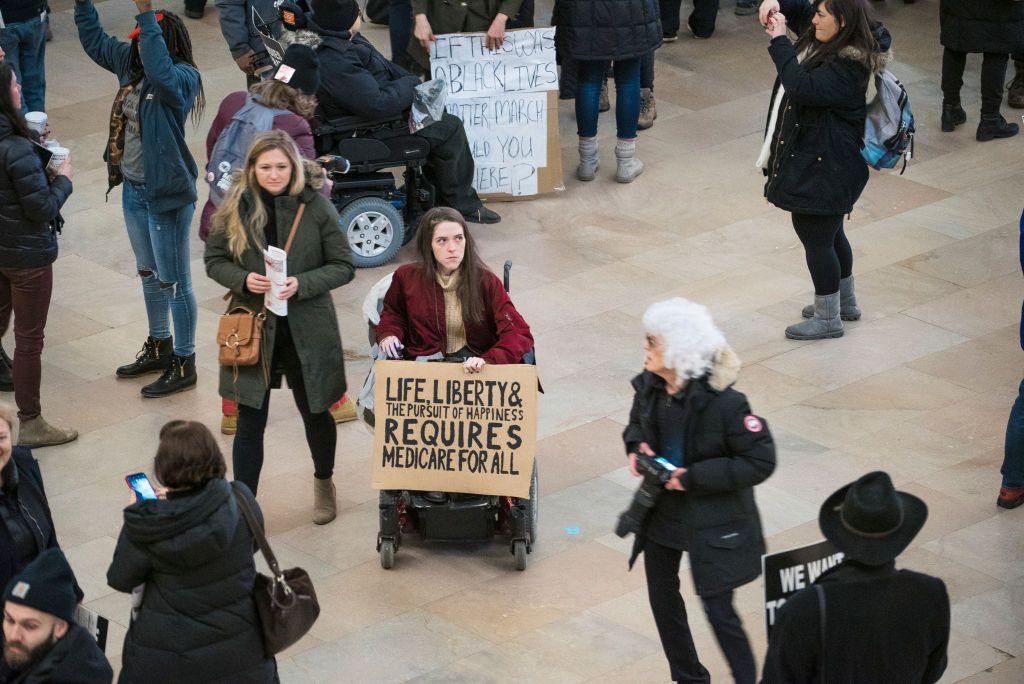
Even though universal health coverage is the norm in every other developed country on Earth, the idea has long been dismissed as too ambitious for America. But today, a growing Medicare for All movement has propelled the idea into the mainstream; it is now supported by most Democratic presidential candidates, and it enjoyed its first hearing in Congress just two weeks ago.
As an ER doctor who supports Medicare for All, I was asked to testify at this historic hearing. While policy experts and economists were present to discuss how we would construct and finance such an ambitious undertaking, I decided to focus on human stories. After all, the specifics of any policy only matter as far as they affect the lives of actual Americans.

I told members of the House Rules Committee about a patient I once had who could not afford to go to the doctor and resorted to taking fish antibiotics from a pet store.
I told the story of a patient who could not afford both his diabetes and his heart attack medications, and, having opted for the diabetes pills, returned to the ER with a heart attack.
I told the story of a patient whose depression was controlled for years on psychiatric medications, only to have her insurance company suddenly stop covering them. Without access to her medications, she returned to the ER not only depressed, but also suicidal. All of these patients not only suffered but also ended up costing our system far more in the end.
We often assume that these sorts of horror stories only affect those without insurance. While the Affordable Care Act did make progress in reducing the number of uninsured, it masks the growing crisis of underinsurance—insurance so expensive or skimpy as to be virtually useless in the event of an actual illness.
Consider Steve, a healthy graphic designer in his early 30s paying over $600 per month for health insurance on the open health care exchange. Steve came into my ER writhing in pain from what ultimately was a simple kidney stone. At that point, however, I was the fourth doctor he was seeing for this exact problem, yet no CT scan had been conducted and no formal diagnosis had been made.
Despite paying so much every month, Steve was not covered: he told me his insurance would not pay a dime for his visit until after he had surpassed his $7,350 deductible. Concerned about his pain but also concerned about a bill worth half a year's rent, Steve had been refusing previous doctors' recommendations for CT scans.
Steve's story would be unimaginable in any nation with a single-payer system. And under Medicare for All, his case would have been simple. Steve would have had his pain controlled; received a CT scan to confirm its source as a kidney stone and rule out anything more dangerous, like a bowel obstruction; and been safely discharged home.
Understandably concerned about cost, however, Steve desperately sought ways to avoid the scan. "If it is a bowel obstruction and we miss it, what could happen?" he asked me. I told him about the possibility of part of his intestines dying, of a severe infection, and even death.
"What do you think the chances of that happening are?" he continued. As we dove deeper into morbid hypotheticals and I tried to reassure him, I could not help but become upset that I was actually entertaining the statistical probability of death for a healthy young man who probably had only a simple kidney stone.
There is no better symbol for the dysfunction of our current system. Steve had done everything right. He had gone to school and, following that, gotten a well-paying job. Steve paid his taxes and his hefty insurance premiums, making sure there was never a lapse in his coverage. And yet, when he needed it most, Steve found himself unable to access care. Instead, he writhed in pain and found himself weighing the probability of death against the out-of-pocket cost of a routine CT scan.
Adding insult to illness, his multiple doctor's visits ended up costing our entire system far more than the price of appropriate care the first time around. Steve showed me what I was trying to show our representatives in Congress: Our broken system causes more pain, at more cost, for worse care.
Of course, Steve was ultimately very lucky. At the end of the day, he was diagnosed with just a simple kidney stone. But I have had patients just like Steve walk out of the door with deadly diagnoses, like complete heart block and sepsis. It is for these patients, and my own sanity, that I chose to speak up.
A Medicare for All plan like those introduced by Rep. Pramila Jayapal or Sen. Bernie Sanders would, in one fell swoop, solve all of these problems. Patients would receive the care they need when they need it. Our system would save vast amounts of money—an estimated $2 trillion over 10 years, according to the libertarian Mercatus Center.
And doctors like me could get back to diagnosing and treating patients instead of helplessly watching them walk out the door. It is time for America to do what is right by our patients, our doctors, and our collective wallets. It is time for Medicare for All.
Dr. Farzon A. Nahvi, an emergency medicine physician in New York City, serves on the board of the New York chapter of Physicians for a National Health Program.
The opinions expressed in this op-ed are the writer's own.
Uncommon Knowledge
Newsweek is committed to challenging conventional wisdom and finding connections in the search for common ground.
Newsweek is committed to challenging conventional wisdom and finding connections in the search for common ground.
About the writer
To read how Newsweek uses AI as a newsroom tool, Click here.








